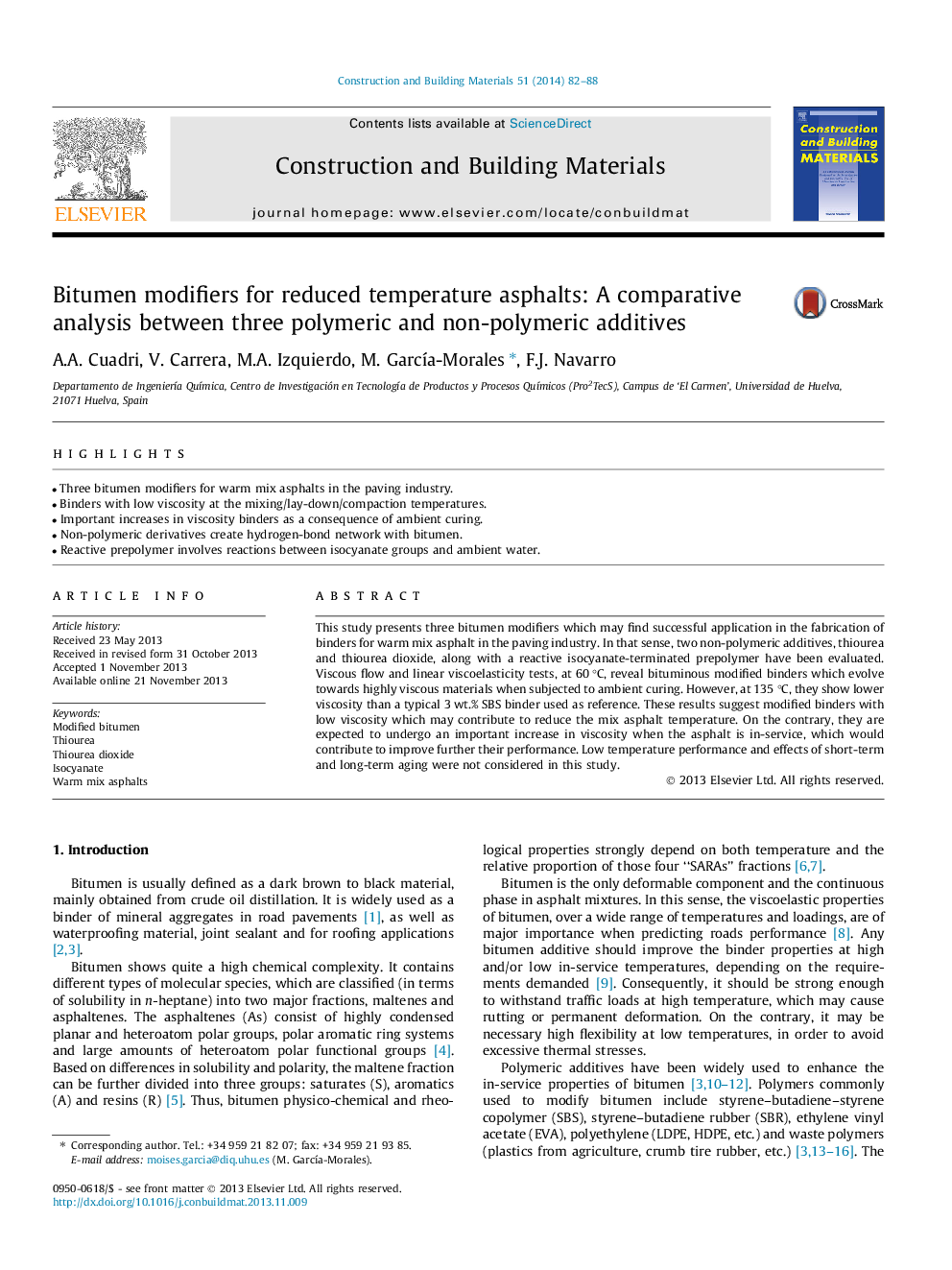| Article ID | Journal | Published Year | Pages | File Type |
|---|---|---|---|---|
| 257952 | Construction and Building Materials | 2014 | 7 Pages |
•Three bitumen modifiers for warm mix asphalts in the paving industry.•Binders with low viscosity at the mixing/lay-down/compaction temperatures.•Important increases in viscosity binders as a consequence of ambient curing.•Non-polymeric derivatives create hydrogen-bond network with bitumen.•Reactive prepolymer involves reactions between isocyanate groups and ambient water.
This study presents three bitumen modifiers which may find successful application in the fabrication of binders for warm mix asphalt in the paving industry. In that sense, two non-polymeric additives, thiourea and thiourea dioxide, along with a reactive isocyanate-terminated prepolymer have been evaluated. Viscous flow and linear viscoelasticity tests, at 60 °C, reveal bituminous modified binders which evolve towards highly viscous materials when subjected to ambient curing. However, at 135 °C, they show lower viscosity than a typical 3 wt.% SBS binder used as reference. These results suggest modified binders with low viscosity which may contribute to reduce the mix asphalt temperature. On the contrary, they are expected to undergo an important increase in viscosity when the asphalt is in-service, which would contribute to improve further their performance. Low temperature performance and effects of short-term and long-term aging were not considered in this study.
